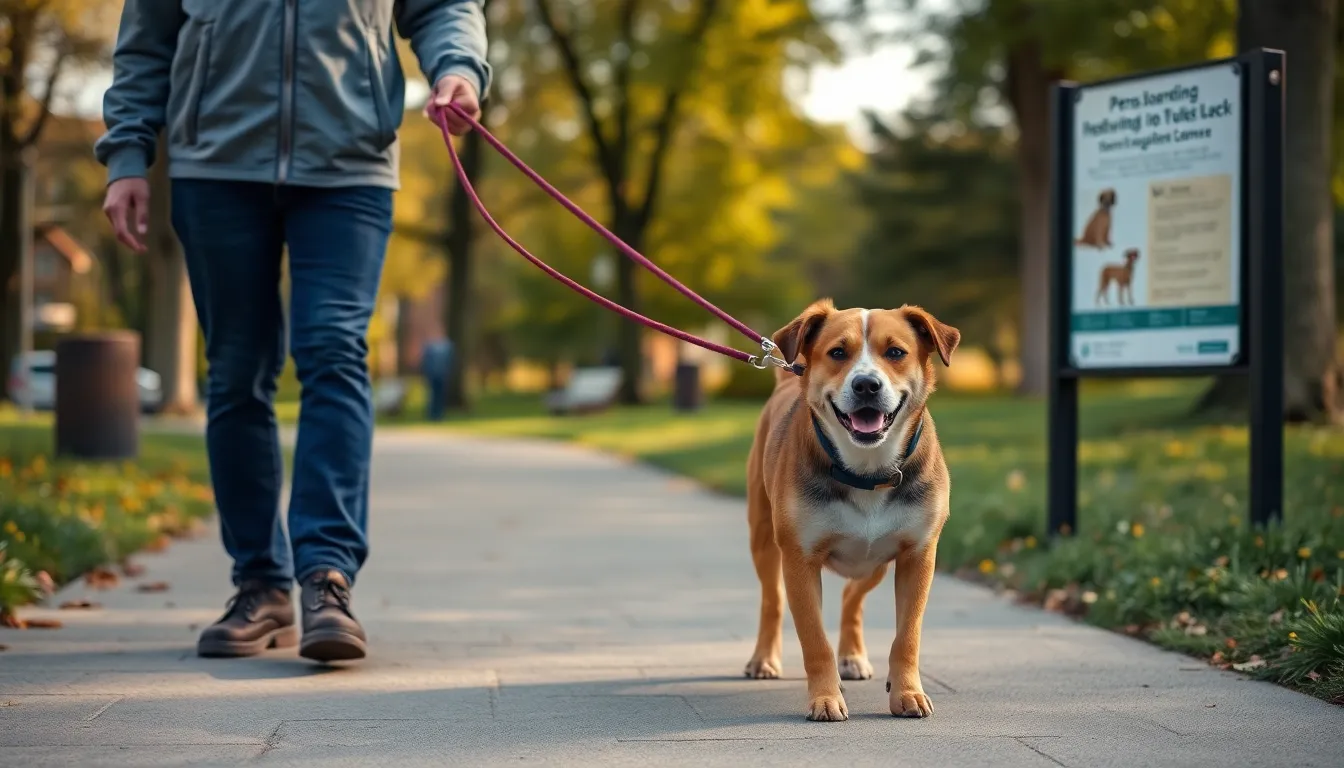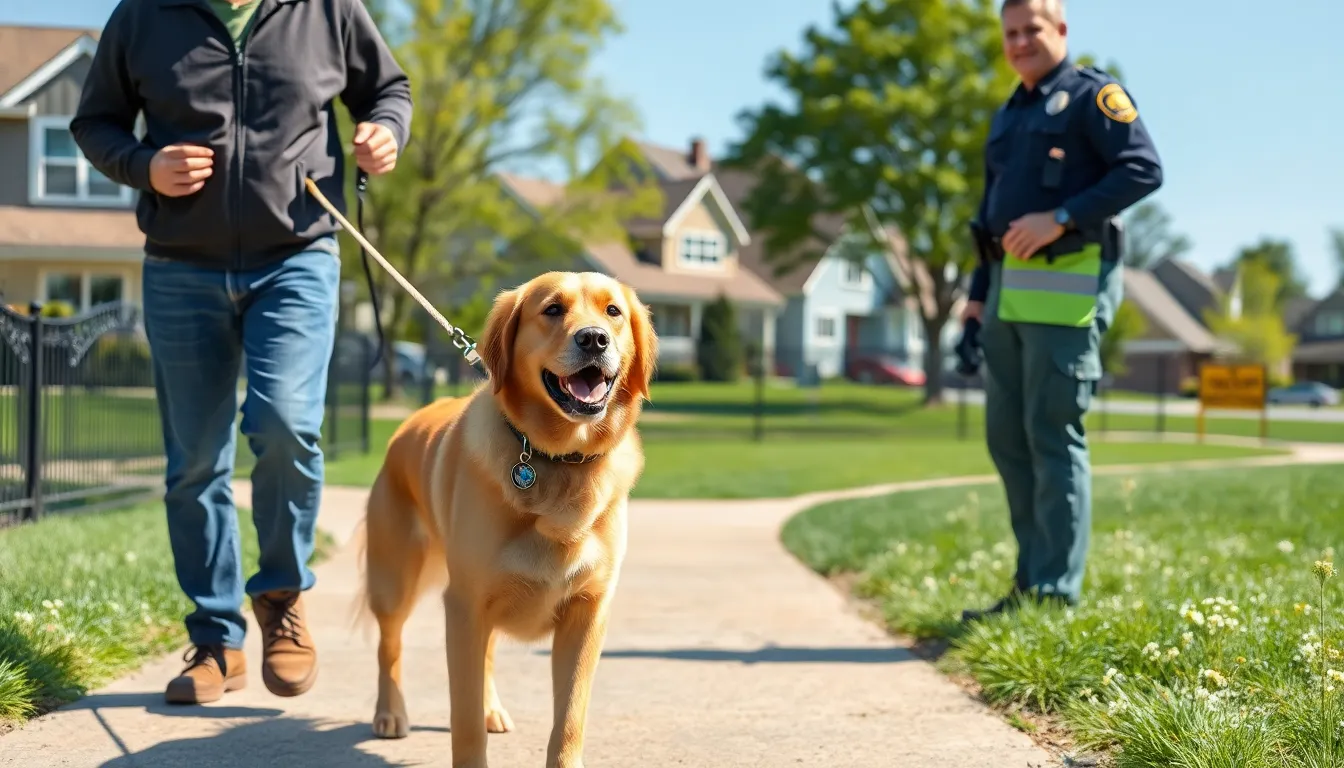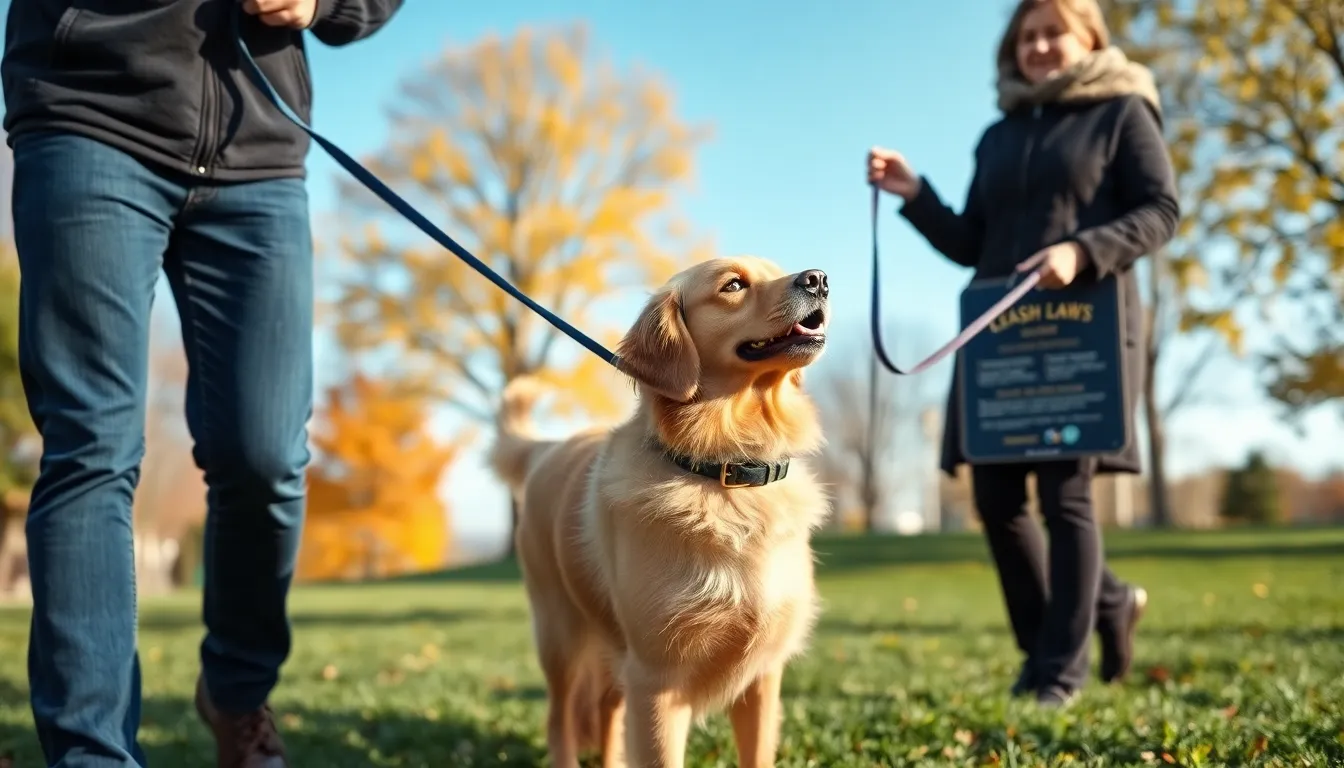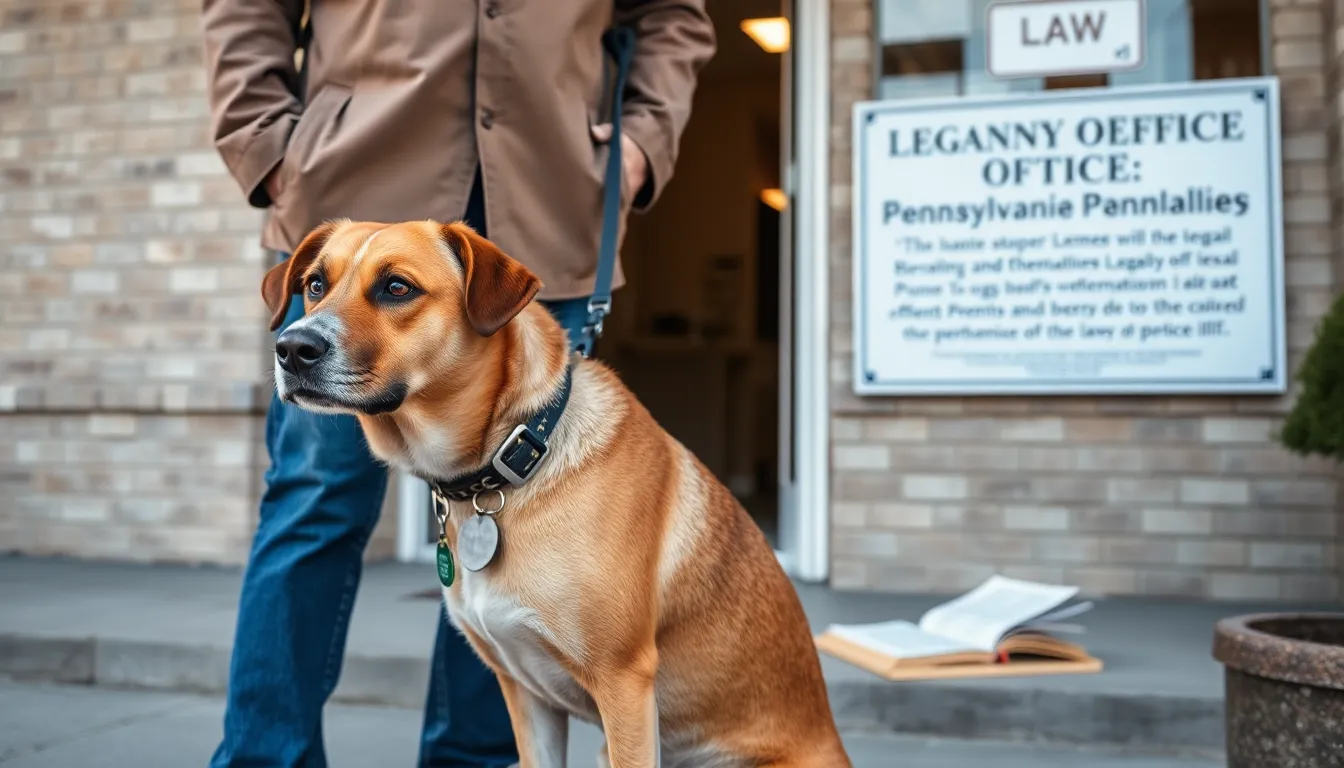PA’s Dog Laws establish comprehensive guidelines for responsible pet ownership in Pennsylvania, covering everything from licensing requirements to leash laws and dangerous dog provisions. These regulations ensure both public safety and animal welfare while imposing legal obligations that every dog owner must understand to avoid penalties.
Key Implications:
- Dog licensing is mandatory for all dogs over three months old, with fees ranging from $6.50-$8.50 for spayed/neutered dogs and $8.50-$12.50 for intact dogs, with failure to comply resulting in fines up to $300.
- Pennsylvania employs a “reasonable control” standard requiring dogs to be under owner control when off private property, though many municipalities enforce stricter leash requirements in public spaces.
- Owners of dogs deemed dangerous face strict requirements including specialized registration, minimum $50,000 liability insurance, proper enclosures, and warning signs on their property.

Pennsylvania’s Dog Laws: What Every Pet Owner Should Know
Pennsylvania’s comprehensive dog laws establish clear guidelines for responsible pet ownership. These regulations cover everything from licensing requirements to leash laws and dangerous dog provisions. Every dog owner must understand these legal obligations to avoid penalties and ensure public safety.
Key Licensing Requirements
Dog licensing in Pennsylvania is mandatory for all dogs three months and older. Licenses can be obtained through county treasurers’ offices, with fees typically ranging from $6.50-$8.50 for spayed/neutered dogs and $8.50-$12.50 for intact dogs (as of 2023). The state offers both annual licenses and lifetime options, with the latter requiring microchipping. Senior citizens often qualify for discounted rates. Failure to license your dog can result in fines up to $300 per violation.
Leash Laws and Public Safety Measures
Pennsylvania employs the “reasonable control” standard rather than a universal leash requirement. This means dogs must be under the owner’s control at all times when off private property. Many municipalities have enacted stricter local ordinances that require leashes in public spaces. The state’s “Dog Law” also addresses:
- Confinement regulations during specific times
- Procedures for handling stray dogs
- Requirements for adequate shelter provision
- Prohibition against prolonged tethering in extreme weather
Dogs that have bitten or attacked others face specific restrictions, potentially including muzzling requirements in public. Professional training can help address behavioral issues before they escalate into legal problems.

Understanding Pennsylvania’s Dog Laws for Pet Owners
Pennsylvania maintains comprehensive laws to ensure the welfare of dogs and public safety. All dog owners must obtain licenses for dogs older than 3 months, renewable annually through county treasurers or authorized agents. The license requirement serves as the foundation of responsible pet ownership in the state. Fees typically range from $6.50-$8.50 for spayed/neutered dogs and $8.50-$12.50 for unaltered dogs (as of 2023), with discounts available for senior citizens and persons with disabilities.
Leash and Confinement Requirements
Pennsylvania law mandates that dogs remain under control when off their owner’s property. This includes:
- Using appropriate restraints like leashes in public areas
- Maintaining secure confinement on private property
- Preventing dogs from roaming at large
- Ensuring proper supervision during off-leash activities
Violations of these regulations can result in fines starting at $100 for first offenses, with penalties increasing for repeated infractions.
Dangerous Dog Provisions
The state classifies a dog as dangerous if it has attacked humans or domestic animals without provocation. Owners of dogs deemed dangerous face strict requirements including specialized registration, liability insurance coverage (minimum $50,000), proper enclosures, and warning signs on property. Pennsylvania’s Animal Control Officers actively enforce these regulations to maintain community safety while balancing the rights of responsible pet owners. Dog bite incidents trigger mandatory reporting protocols and potential quarantine requirements to protect public health.

Understanding Pennsylvania’s Dog Laws for Responsible Ownership
Pennsylvania maintains specific legal frameworks governing dog ownership that every pet parent should know. These laws balance public safety with animal welfare across multiple situations. All dog owners must comply with licensing requirements starting when a dog reaches three months of age, with licenses renewed annually through county treasurers’ offices. Current data shows license fees typically range from $6.50-$8.50 for spayed/neutered dogs, while intact dogs cost $8.50-$12.50 depending on the county.
Leash and Containment Regulations
The state enforces strict leash laws that require dogs to be under control when off the owner’s property. Dogs must either be physically restrained on a leash or under direct voice control of the handler at all times. Property owners must ensure their dogs cannot freely roam neighborhoods. Municipal ordinances often impose additional restrictions, including designated areas where dogs must remain leashed regardless of training level. Violations can result in fines starting at $25 for first offenses and increasing with subsequent incidents.
Dangerous Dog Classifications and Responsibilities
Pennsylvania law identifies specific criteria for “dangerous dog” designations, including:
- Any dog that has attacked a person without provocation
- Any dog that has killed or severely injured another domestic animal without provocation
- Any dog that has been used in the commission of a crime
- Any dog with a history of running at people in a threatening manner
Owners of dogs legally designated as dangerous must maintain special liability insurance (typically $50,000-$100,000), register the dog with the state, post warning signs, and use specific restraint measures. Failure to comply with these requirements can lead to significant penalties and potential confiscation of the animal.

Understanding Pennsylvania’s Dog Laws
Pennsylvania maintains a comprehensive set of regulations governing dog ownership that protect both animals and the public. Pet owners must comply with these laws or face significant penalties including fines and potential legal liability. The Pennsylvania Dog Law (3 P.S. § 459-101 et seq.) serves as the foundation for these regulations, establishing clear requirements for all dog owners in the state.
Key Requirements for PA Dog Owners
All dogs three months or older must be licensed annually through the county treasurer’s office, with fees typically ranging from $6.50-$8.50 for spayed/neutered dogs and $8.50-$12.50 for intact dogs. Pennsylvania law also mandates current rabies vaccinations for all dogs and cats over three months old. Owners must maintain control of their dogs at all times, as allowing dogs to run at-large is prohibited in most areas.
Understanding Liability and Dangerous Dog Provisions
The state employs a “strict liability” approach regarding dog bites, making owners responsible for injuries their dogs cause regardless of the animal’s previous behavior. Dogs that have inflicted severe injury without provocation may be classified as “dangerous dogs” requiring special registration, insurance coverage (minimum $50,000), proper enclosures, and distinctive identification. Owners of dangerous dogs face heightened responsibilities and more severe penalties for non-compliance.
Pet owners should regularly review local ordinances as municipalities may implement additional regulations beyond state law. Adopting a dog comes with legal responsibilities that protect both your pet and community members from potential harm.
Source
Commonwealth of Pennsylvania Official Website, Department of Agriculture, Animals, Information About Dogs, “PA’s Dog Laws”
